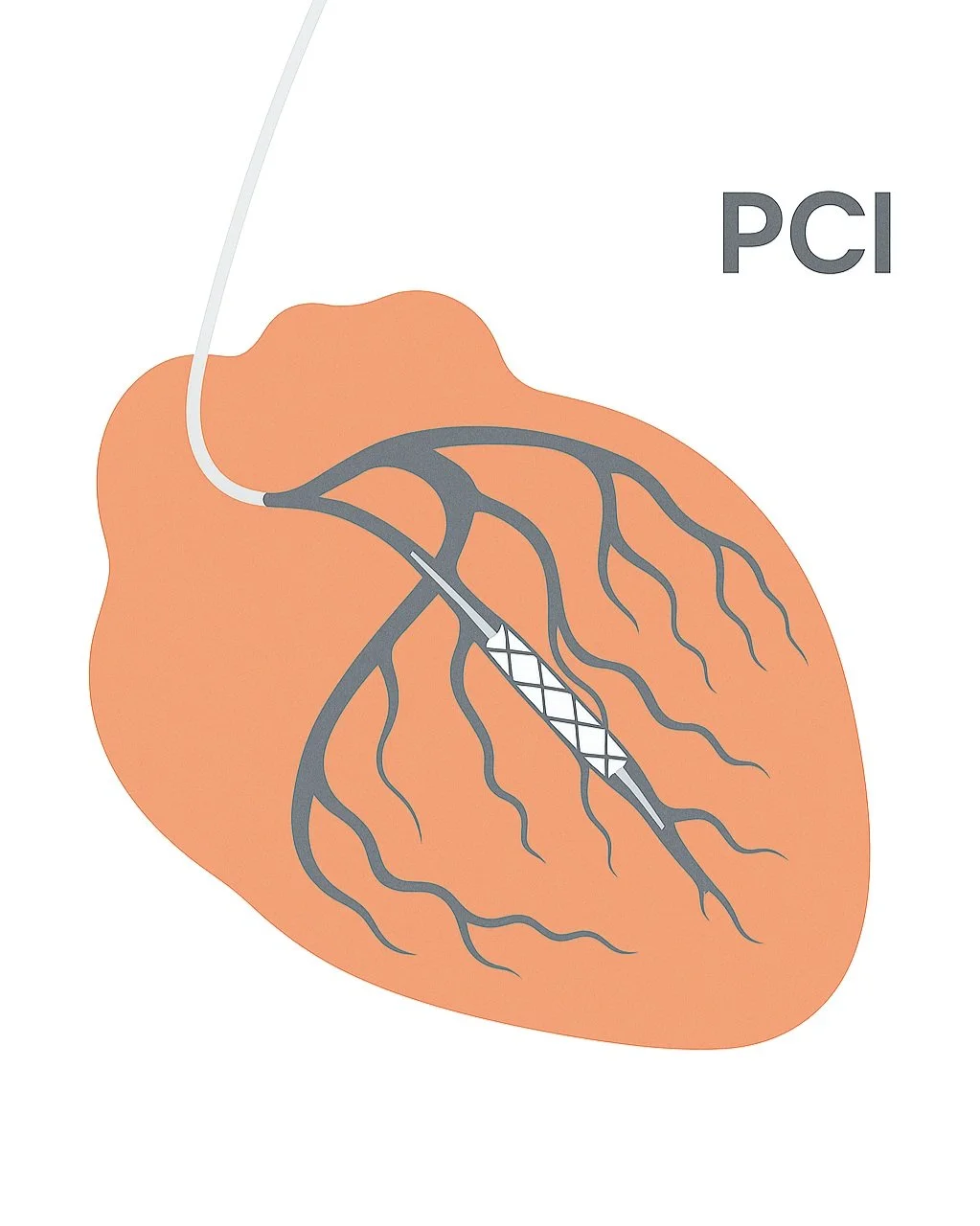Interventional Procedures
Coronary Angiogram and Stenting (PCI)
Percutaneous Coronary Intervention (PCI) is a potentially life-saving procedure that opens blocked or narrowed coronary arteries, restoring blood flow to the heart muscle. Dr. Aroney uses state-of-the-art technology, including advanced imaging systems and specialised catheter-based techniques, to perform PCI with precision and minimal risk, allowing patients to resume their normal lives sooner.
Transcatheter Aortic Valve Implantation (TAVI)
TAVI is a minimally invasive procedure used to treat severe aortic stenosis—a narrowing of the aortic valve that can cause fatigue, chest pain, or shortness of breath. Instead of open-heart surgery, TAVI uses a catheter, usually inserted through a blood vessel in the leg, to deliver and implant a new valve inside the diseased one. Dr. Aroney’s expertise in TAVI, was honed at St Thomas’ Hospital, London, a worldwide centre of excellence for TAVI and structural heart interventions.
Patent Foramen Ovale Closure (PFO Closure)
A PFO is a small hole between the upper chambers of the heart that didn't close naturally after birth. In some individuals, this opening can allow blood clots to pass from the right side of the heart to the left, potentially leading to stroke or other complications. PFO closure is a minimally invasive procedure performed through a vein in the leg, using a small device to seal the hole and reduce the risk of future strokes. The procedure is typically safe, well-tolerated, and allows for a quick recovery.
Transcatheter edge-to-edge repair (TEER or MitraClip)
A minimally invasive treatment for leaky (regurgitant) Mitral Valves
What is it? MitraClip is a minimally invasive procedure to repair a leaky mitral valve (mitral regurgitation) without open-heart surgery.
Who is it for? It is indicated for patients with significant symptomatic mitral regurgitation who are considered too high-risk for traditional mitral valve surgery.
How does it work? During the procedure, a thin tube (catheter) is guided through a vein in your leg to your heart. A small clip is then attached to the leaflets of your mitral valve, helping them to close more completely and reduce the backward flow of blood.
What are the benefits? Patients often experience significant improvement in their symptoms, such as shortness of breath and fatigue. As a minimally invasive procedure, it typically involves a shorter hospital stay and a quicker recovery compared to open-heart surgery.
Adult Congenital Heart Interventions (ASD, PDA)
For patients with congenital heart defects that persist into adulthood, such as Atrial Septal Defect (ASD) and Patent Ductus Arteriosus (PDA), Dr. Aroney offers expert interventions to repair or close these defects. His experience in managing complex congenital heart conditions allows him to provide tailored treatments that significantly improve long-term health outcomes.




